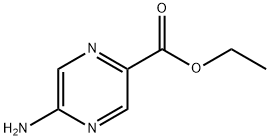n a significant move that has sent shockwaves through the automotive industry and global trade, President Trump announced a 25% tariff on all imported cars, which took effect on April 3. This decision has far - reaching implications not only for the automotive sector but also for international trade relations and even the chemical materials used in car manufacturing. But how exactly will this policy play out, and what changes can we expect?
What is the matter with Trump's tariffs on cars? What impact will it have on trade, chemical materials and the cars we buy?
Related Encyclopedia
Related Products More >
-
- 9002-86-2
- CNY equest For Quotation
-
- CNY equest For Quotation
-
- 9002-86-2
- CNY 10.0000
- 25kg
-
- 9002-86-2
- equest For Quotation
- 220kg
-
- 9002-86-2
- equest For Quotation
- 1ton
-
- 9002-86-2
- equest For Quotation
- 25kg
-
- 9002-86-2
- equest For Quotation
- 1ton




 沪ICP备2021018848号-5
沪ICP备2021018848号-5

The auto sector has seen an immediate and dramatic response. In March, the auto sector outperformed the rest of the retail market. As sales excluding motor vehicles and parts increased by 0.5%, auto sector sales jumped by 5.3%. Consumers, fearing price hikes, rushed to showrooms. Cox Automotive estimates that the 25% tariff on non - U.S. assembled vehicles will increase the average cost of imported vehicles by
6,000,andforvehiclesassembledintheU.S.,thecostwillriseby 3,600 due to the upcoming 25% tariffs on automotive parts. This is on top of the 300−500 increases from previously announced tariffs on steel and aluminum.
Automotive executives and dealers reported a significant surge in showroom traffic and sales once Trump confirmed the tariffs. New vehicle sales were running 22% above the seasonally adjusted pace of last year and were up more than 8% through early April on a volume basis, according to Cox. However, there are concerns. Inventory levels have declined substantially, likely pushing vehicle prices higher. With economic concerns rising and consumer confidence declining, the outlook for new auto sales is becoming more troubling.
Repercussions on International Trade
The tariff has also triggered strong reactions from America's trading partners. Canada's Prime Minister called it “a direct attack on the Canadian auto industry” and announced a 20−billion(about 14 billion in U.S. dollars) “strategic response fund”.
The European Union expressed “deep regret”, and the German automotive industry association warned that the tariff is a “fatal signal” for global trade. Japan's Prime Minister did not rule out countermeasures. These responses indicate that the tariff could lead to a full - scale trade war, disrupting the global automotive supply chain. Many cars are assembled using parts from multiple countries, and higher tariffs will increase costs for manufacturers worldwide.
Effect on Chemical Materials in the Automotive Industry
In car manufacturing, various chemical materials are used. Steel, which contains iron and carbon and is often alloyed with other elements, is a staple in car frames. Aluminum, known for its light weight and corrosion resistance, is also widely used, especially in modern fuel - efficient vehicles. Tariffs on steel and aluminum have already increased the cost of these materials. Now, with the new car tariff, manufacturers may be forced to look for alternative materials or sources.
For example, composite materials made from polymers and fibers could become more attractive. These composites often include epoxy resins, which are used to bind fibers together. If the cost of traditional materials continues to rise due to tariffs, the automotive industry may accelerate its shift towards these alternative, more cost - effective (in the long run) chemical - based materials.
Consumers Caught in the Middle
For consumers, the picture is complex. Some rushed to buy cars early to avoid higher prices. However, not all consumers can afford to make such a purchase immediately. Many are adopting a “wait - and - see” attitude. Procter & Gamble's CFO noted that tariffs have led to “a more nervous consumer” who is more value - conscious and hesitant to spend. This cautious consumer behavior is not limited to big - ticket items like cars. It extends to everyday purchases as well, as people worry about the overall economic impact of the tariffs.
1. Early Purchases in Some Categories:
Cars: Big surge in car buying, especially before prices rise due to tariffs.
Auto sales jumped 5.3% in March.
New car sales were running 22% above last year’s pace in early April.
Tariffs could raise prices by $6,000 for imported cars, $3,600 for U.S.-assembled ones (due to parts tariffs).
iPhones and Big Electronics: Some consumers also replaced phones and bought large electronics earlier.
2. Hesitation and Delayed Spending Elsewhere:
For everyday goods like paper towels, clothing, appliances, and furniture, people are delaying purchases rather than buying early.
NielsenIQ survey:
35% of U.S. consumers planned to delay major purchases (like homes, cars, appliances) because of tariffs.
Only 7% planned to speed up major purchases.
3. Nervous Consumer Sentiment:
Procter & Gamble CFO said consumers became “more nervous” and pulled back on spending.
People are watching their wallets, seeking deals and value options.
Shoppers shift to big-box and club retailers for better prices.
4. Airline and Travel Spending Drops:
Domestic airfare prices fell 5.3% in March.
Demand for domestic leisure and business travel weakened.
Airlines like Delta, American, and United warned about lower revenues and pulled 2025 outlooks.
5. Retail Traffic Trends:
Superstores, grocers, clothing stores: Saw higher foot traffic in early April (boosted partly by Easter timing).
Furniture and home improvement stores: Lower traffic year-over-year.
6. Uncertainty is Widespread:
The overall tone: Consumers are cautious.
Many companies across sectors report more volatile spending patterns and unpredictable demand.
Automotive executives and dealers have reported significant gains in showroom traffic and sales. Craig DeSerf, executive manager of Gulf Coast Chevrolet Buick GMC in Texas, described it as “a little bit of a buying frenzy.” Michael Bettenhausen, a dealer in Illinois and chair of the Stellantis dealer council, also confirmed that there has been a big pull - ahead in sales. However, there are concerns that once automakers and dealers sell out of their tariff - free inventories, sales could come to a halt. With economic concerns rising and consumer confidence declining, the outlook for new auto sales remains troubling.
The Role of Chemical Materials in Car Manufacturing
Cars are complex products that rely on a wide range of chemical materials. For example, polyurethane (PU) is commonly used in car seats for its comfort and durability. It provides a soft yet supportive surface for passengers. Polyvinyl chloride (PVC) is used in wiring harnesses and cable insulation due to its excellent electrical properties and resistance to moisture. Acrylonitrile butadiene styrene (ABS) is employed in the manufacturing of car bumpers and dashboard components because of its high impact resistance and ease of molding.
The tariffs on imported vehicles and parts could potentially disrupt the supply chain of these chemical materials. If the cost of imported raw materials increases due to tariffs, car manufacturers may face higher production costs. This could lead to a reduction in the use of certain high - quality chemical materials or a search for alternative, more expensive domestic sources. In turn, this may affect the quality and safety of the cars we buy.
Impact on Trade
Trump's tariffs on cars have also had a significant impact on trade relations. The US has kept a 25% levy on all imported vehicles, which has led to retaliatory measures from other countries. This tit - for - tat approach can disrupt global supply chains and increase the cost of doing business for automakers. For example, if a European car manufacturer exports vehicles to the US, they may face higher tariffs, which could make their products less competitive in the US market. This could lead to a decrease in exports from Europe to the US and a shift in trade patterns.
Moreover, the tariffs have created uncertainty in the global automotive market. Automakers are now faced with the challenge of predicting future demand and adjusting their production plans accordingly. This uncertainty can lead to inefficiencies in the supply chain and potentially higher prices for consumers.
The Consumer Dilemma
Consumers are caught in a difficult situation. On one hand, they are eager to take advantage of the current lower prices before the tariffs fully kick in. Tiffany Armstrong, an attorney in Dallas, made an exception to her plan and bought a new iPhone earlier than planned, while delaying a kitchen remodel due to uncertainty about costs. On the other hand, they are also concerned about the long - term impact of the tariffs on the automotive market. If sales slow down after the tariff - free inventories are depleted, there may be fewer choices and higher prices for consumers.